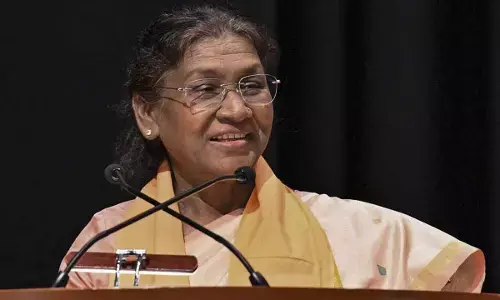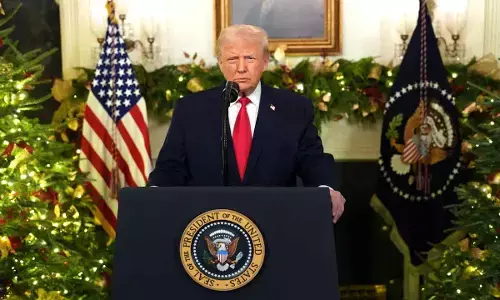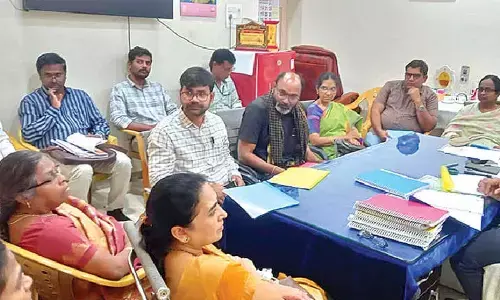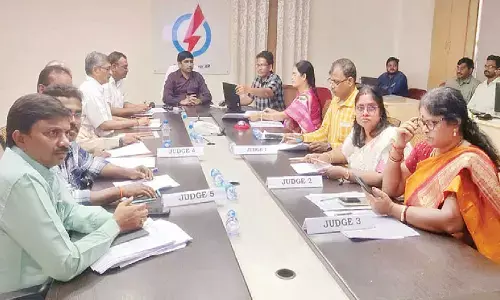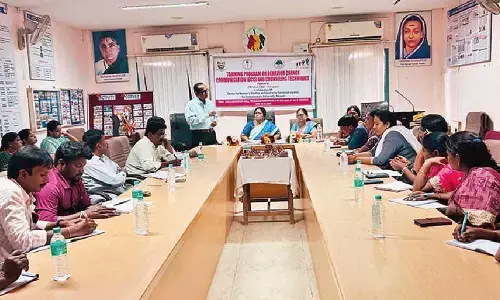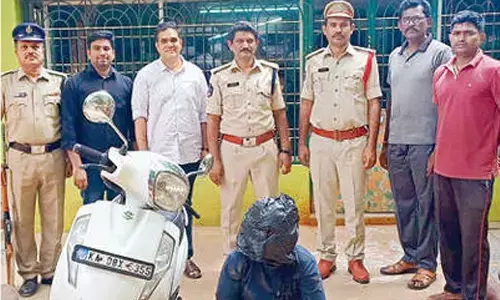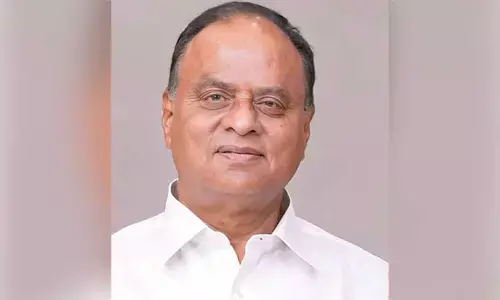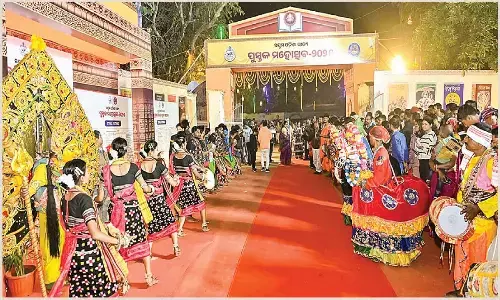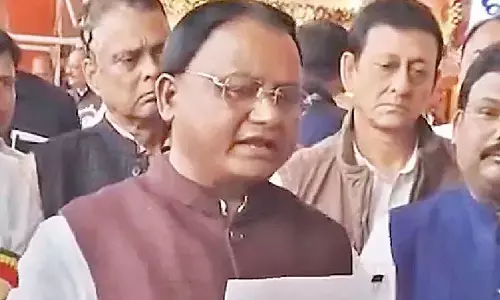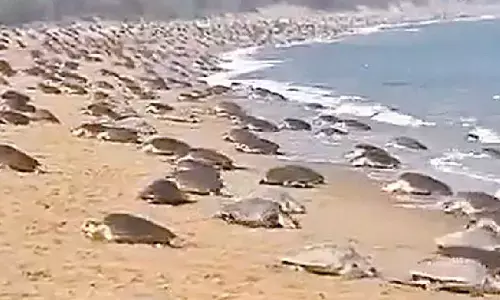Abracadabra L’affaire Devyani

Abracadabra L’affaire Devyani, Even as we celebrate Nadendla Satya’s success story in the land of Big Apple, the latest on the Devyani story brings into question the so-called spine in Indian diplomacy.
“Manmohan Sarkar has to blame itself for the new lows in the Indo-US relations. And complicating the situation further is the limited world vision of President Barak Obama, who finds himself hit by the proverbial second term syndrome that had stymied the stride of many American chief executives long before he had arrived at the White House with a dream”
Even as we celebrate Nadendla Satya’s success story in the land of Big Apple, the latest on the Devyani story brings into question the so-called spine in Indian diplomacy. After the former Indian vice consul in New York returned home in early December, we were led to believe that the alleged ‘visa fraud’ case slapped against her would become one of those ubiquitous papers that remain perpetually under consideration.
Preet Bharara, the Indian-American attorney, who has become Devyani’s tormentor in a manner of speaking, has just stated that the Indian diplomat remains a guilty person and that she cannot escape the American law. His assertion, which appears to have the backing of the American administration, the State Department (Foreign Office) including raises the spectre of a new diplomatic spat just when Delhi is slipping into the election mode, giving a further lease to policy and directionless paralysis.
The way Devyani episode was handled right from the word go did not bring any credit to our South Block. It should have either made a common cause with fellow Third World countries like Philippines that are known to import domestic helps for the mission staff from home, or read the riot act to the State Department since the enterprise of American diplomatic staff in Delhi has been in public domain.
India did neither. It woke up to the gravity of the problem only after Devyani was handcuffed and strip searched, and was made to put up with hardened criminals in a New York penitentiary. And changed gears from pleading for a realistic look at Devyani’s case to a bull in a China shop.
Given the geo-political realities and Washington’s clamour to make Delhi its Asia pivot with an eye on Beijing, India’s riposte should have paid dividends. It did not, offering enough food for thought to our egg-heads, who spend half their time on the Pennsylvania Avenue and Rhode Island in Washington DC and Madison Avenue and Harold Pratt House in New York.
Devyani was not the first Indian representative to stomach the American insults and humiliation. Several visiting Indian leaders, a defence minister and a former president including, were subjected to such indignities at the US entry ports in the past. But her case became unique because it has thrown up the possibility of many of her Indian colleagues in the American cities being hauled up by Preet Bhararas. This realisation had led to the US embassy facing Indian ‘retaliatory’ actions.
Removal of security barricade outside the US embassy in Chanakyapuri, and withdrawal of no-frisking facility at the airports were some of these responses that had failed to unnerve the Americans into submission. Extra privileges like diplomatic status to American consular staff in Mumbai and other cities were also quietly withdrawn. Such privileges are generally offered on reciprocal basis. The Americans had never offered them to the Indian diplomats posted outside Washington and therefore India had no business to treat American consulate staff differently for decades.
Delhi’s Rip Van Winkle woke up to this reality only after Devyani’s tryst with American justice backfired. Holding mirror to the tax evasion by US diplomats in India and the dual pay system the US embassy has in place for the Indian staff in their missions across the country are a natural corollary to the wakeup call. These steps smacked of an arrogance that India is often accused of by its small neighbours. And also reflected the sense of frustration of a growing up super power that led India nowhere! The spouses of as many as 16 US diplomats in India are said to be working at the American School in Delhi. None of them has reportedly obtained a work visa, which is essential to take up a job here. If we go by the bench mark set in Devyani case by the New York authorities, all these 16 diplomats and their spouses stand guilty of flouting Indian laws.
Put differently for one Devyani in America, there are 16 Devyanis in India. That is the magnitude of the ‘fraud’ by the US diplomats in India. There are several other chinks in the American diplomatic armour in India like evasion of income tax on commercial activities.
It is doubtful whether the Manmohan Singh Sarkar will pursue these ‘leads’ with the vigour demanded of it in the short time available at its disposal. Moreover with every passing day, it is finding itself cornered on the home front, which in turn is undermining its diplomatic turf space.
There is no gainsaying that Delhi has to blame itself for the new lows in the Indo-US relations. The UPA has failed to fulfill its part of the nuclear bargain it had entered into with the White House. Its nuclear liability formulations have made the Americans see a new red herring. Complicating further is the limited world vision of President Barak Obama, who finds himself hit by the proverbial second term syndrome that had stymied the stride of many American chief executives long before he had arrived at the White House with a dream.
The Indian view that Washington needs Delhi by its side since Pakistan is the epicenter of terrorism targeted at Afghanistan, India and beyond is neither here nor there. It also ignores the historical nugget that the US of A has been one of the three ‘A’s governing Pakistan – the other being Allah and Army. There is no change in that equation. In fact, Pakistan has become a crucial to US plans for Afghanistan after it opened its dialogue with the Taliban, which is the first step to eventual American talks with the Taliban on regime change in Kabul.
All this may appear as abracadabra in the context of L’affaire Devyani but are inputs to be factored in if there is to be shine in the Indian diplomatic spine. And to compel Americans to treat our Devyanis with sensitivity and some respect though India is years away from being a leading power in the world.








